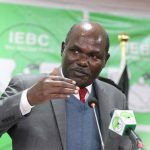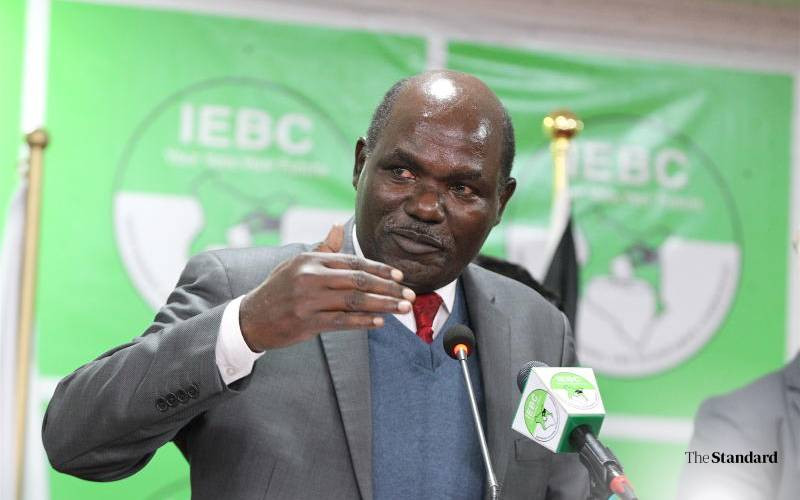Mudavadi defends Kenya’s neutrality as Sudan accuses Nairobi of hostility
Kenya finds itself at the centre of the diplomatic storm surrounding Sudan’s ongoing civil conflict, simultaneously being praised for its peace efforts while facing harsh criticism from Sudan’s government over recent political developments in Nairobi.
On Wednesday, February 19, 2025, Prime Cabinet Secretary and Foreign and Diaspora Affairs Cabinet Secretary Musalia Mudavadi issued a statement reaffirming Kenya’s commitment to fostering peace in Sudan, which has been ravaged by conflict for nearly two years.
“The crisis in Sudan demands urgent regional and global attention. With its credentials as an enabler of peace in the region and across the globe Kenya remains at the forefront of seeking solutions to the humanitarian crisis in Sudan. As a country, we have committed 2 million USD towards global and regional initiatives to alleviate the dire humanitarian situation in Sudan,” Mudavadi said.
Mudavadi also called for urgent international action to prevent what he described as one of the world’s worst humanitarian and security emergencies, with approximately 11 million people displaced.
“Kenya has historically provided a platform for dialogue between conflicting parties in the region,” Mudavadi said, recalling the 2002 Machakos Protocol that helped end Sudan’s previous civil war.
“When Kenya offers this space, it is without ulterior motives. It is because we believe there is no military solution to political disputes.”
Sudan’s military junta slams Kenya
However, Kenya’s mediation efforts took a controversial turn on Tuesday, February 18, 2025, after Nairobi hosted a political gathering involving a coalition of Sudanese political forces and armed groups aligned with the paramilitary Rapid Support Forces (RSF), which has been engaged in a brutal power struggle with Sudan’s army.

The event, held at Kenyatta International Convention Centre (KICC), was intended as a preliminary step toward forming a new political alliance in RSF-controlled areas, with plans for a political charter to be signed within days.
Sudan’s foreign ministry swiftly condemned Kenya’s decision to host the meeting, calling it a declaration of hostility against the Sudanese people.
In a strongly worded statement on Tuesday, the ministry accused Kenya of violating Sudan’s sovereignty, encouraging the division of African nations, and contravening international law, including the UN Charter and the African Union Constitutive Act.
“Hosting RSF leaders and allowing them to conduct open political and propaganda activities at a time when they are committing genocide and massacres against civilians on ethnic grounds is an encouragement and participation in the continuation of these atrocities,” the statement read.
The ministry further expressed regret that Kenya had allegedly reneged on earlier assurances not to permit hostile activities against Sudan on its soil.
Sudanese Foreign Minister Ali Youssif underscored the tension, referencing his January 26 meeting with President William Ruto, during which [according to Sudan] Ruto pledged not to recognize any government formed by the RSF in territories under its control.
Sudan now accuses Kenya of backtracking on that commitment.
Mudavadi stresses Kenya’s neutrality
Mudavadi, addressing the controversy indirectly, reiterated Kenya’s neutral stance and longstanding role as a peace facilitator.
“Kenya therefore reiterates its solidarity with the people of Sudan as they define their destiny and future political governance through inclusive dialogue. Kenya is confident that the Sudanese people will find a quick solution to the current situation, and in a manner that safeguards its security and that of the region,” Mudavadi said.
“On its part, Kenya remains ready, individually and collectively through IGAD, AU, and other regional mechanisms, to support any efforts agreed upon by the people of Sudan, in ensuring stability and prosperity of their country and the entire Horn of Africa region,” he added.

Mudavadi nonetheless emphasized the importance of prioritizing a delicate balance between security objectives and the return to civilian rule in Sudan to achieve democracy and prosperity for its people.
He stated that Kenya aligns with the African Union (AU) Charter on the Unconstitutional Change of Government and the AU’s October 27, 2021, decision to suspend Sudan from all its activities, including the recently concluded African Union Commission (AUC) elections.
“The need for a delicate balance between security objectives and a return to civilian rule in Sudan should be prioritized to achieve democracy and prosperity for the people of Sudan. In this regard, Kenya aligns with the African Union (AU) Charter on the Unconstitutional Change of Government and the 27″ October 2021 AU decision suspending Sudan from all activities of the AU including the just-ended African Union Commission (AUC) elections.”
Humanitarian agencies continue to sound the alarm over Sudan’s deteriorating conditions, citing widespread displacement, food insecurity, and escalating violence.
Despite international diplomatic engagements, including multiple ceasefire attempts, the conflict shows little sign of resolution.
Kenya’s dual role, as both a mediator and now a target of Sudanese diplomatic ire, reflects the complexities of regional diplomacy in East Africa.
While Mudavadi emphasized Kenya’s commitment to inclusive dialogue, the diplomatic fallout from this week’s Nairobi meeting underscores the challenges of navigating conflicting regional interests amid Sudan’s protracted crisis.







